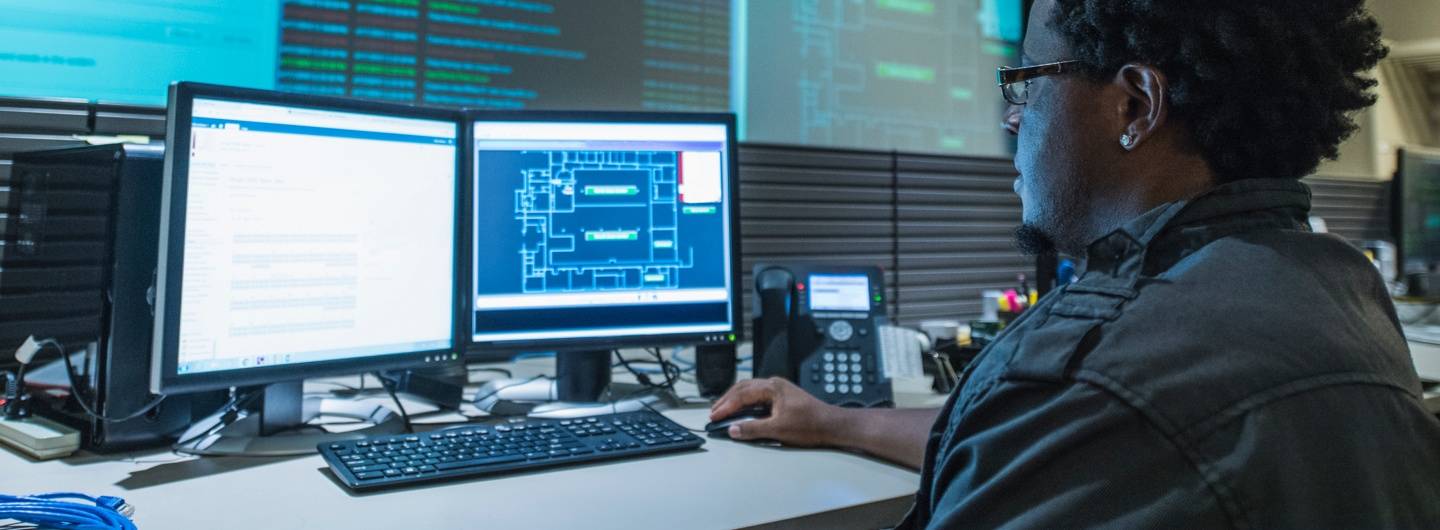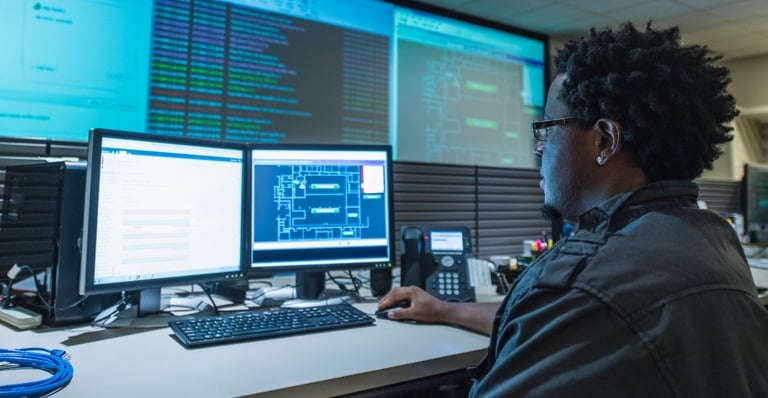A structured learning format with an active peer community and faculty guidance. We’ll set the schedule, you meet the deadlines.


Digital Forensics
Master of Science in Information Assurance and Cybersecurity
Master the latest tools and methods to solve digital crimes and lay the groundwork to become an expert in the field. Capella’s MS in Information Assurance and Cybersecurity, Digital Forensics will equip you with the skills to conduct forensic investigations that produce court-admissible evidence and yield proactive solutions to prevent future cybersecurity attacks. You’ll examine the ways perpetrators can hide data on computers or other digital devices and learn to use reverse engineering software to analyze the code or structure of digital artifacts, like malware.
At a glance
- Online
- 6 Core courses
- 5 Specialization courses
- Capstone
Reduce your tuition up to $2,500
Enroll in a qualified program and apply for a $2.5K Capella Progress Reward scholarship to help fund your master's degree.
Explore digital forensics courses
- This degree requires a total of 48 program credits
- You’ll need to complete six core courses, five specialization courses and one capstone
*Course has prerequisite(s). See catalog for details.
What you'll learn
This specialization prepares information security professionals for successful performance-effective computer forensics, including the legal challenges associated with digital forensics investigations. Students examine the ways data can be hidden on a computer, evaluate computer forensics investigation tools and procedures, apply methods for handling and transporting uncovered data, and create the reports necessary for presentation of digital forensic evidence at trial.
On successful completion of this program, you should be able to:
- Analyze common data structures and data formats for storing data in a computer system
- Apply basic procedures such as probing, measuring, and data collection to identify functionality and affect modifications in the prevention of unauthorized malware and reverse engineering, which threaten information security
- Apply a common reverse engineering software tool to the safe static and dynamic analysis of software (or malware) of unknown origin for the purposes of recovering the original implementation and/or understanding the software functionality
- Analyze methods for the acquisition and analysis of mobile devices in digital forensics investigations
- Analyze what can and cannot be retrieved from various operating systems in digital forensic investigations, employing “best practice” methodologies used in host/ network digital forensics
- Analyze methods and approaches for forensic analysis on specified media
- Analyze methods used in digital forensics network investigations
How much does the MS in Information Assurance and Cybersecurity cost?
The total cost of your degree will depend on academic performance, transfer credits, scholarships and other factors. See GuidedPath cost information below.
- Based on the quarter system; 1–3 courses per 10-week quarter
- 1 semester credit = 1.5 quarter credits
- Weekly assignments and courseroom discussions
- Pay for what you take, price varies by courseload or quarter
- $735 per credit
- $175 resource kit
- 48 total quarter credits
- 12 max transfer credits
*This is only an estimate, effective Jan. 12, 2026, and is subject to change.
Capella is committed to transparency in tuition and pricing. You will be responsible for costs in addition to tuition, which may include your resource kit, travel expenses and practicum costs.
Your tuition amount will vary depending on your unique circumstances such as your program specialization, transfer credits and any applicable tuition discounts. Books, course materials, supplies, equipment and other expenses are not included. Tuition estimates shown for the GuidedPath learning format depend on the number of credits accepted for transfer.
New or recently revised program estimates are based on comparable programs. Review program-specific fee amounts in our University Catalog.
Get the details
Find out more about financing and payment options to help you complete your program. Federal aid also is available to help manage the costs of higher education.
Connect with an enrollment specialist to further discuss the cost of the program and explore your eligibility for scholarships and discounts.
Questions about cost?
Contact an enrollment specialist.
Are there scholarships available for master's degrees?
Your education is an investment in your future. There are more ways to save than you might think.
Capella is accredited by the Higher Learning Commission.
Accreditation and recognitions provide evidence that we meet standards for quality of faculty, curriculum, learner services, and fiscal stability. See all our accreditations and recognitions.
Capella University has been designated by the National Security Agency (NSA) as a National Center of Academic Excellence in Cyber Defense (CAE-CD).
MS in Information Assurance and Cybersecurity admission requirements
Admission requirements
Applicants to the MS in Information Assurance and Cybersecurity, Digital Forensics program must provide the following information for admission:
- Bachelor’s degree from an institution accredited by a U.S. Department of Education-recognized accrediting agency or an internationally recognized institution
- Your official bachelor’s transcripts, minimum grade point average of 2.3 or higher on a 4.0 scale
- A background acknowledgement form that indicates your technology degree or relevant work requirements for this program
- Admission application – no application fee required
- A valid, government-issued form of photo identification
GRE and GMAT are not required for admission.
International student requirements
If you completed your most recent academic coursework, degree or credential at an institution outside the United States, regardless of your citizenship or where you currently live, you are considered an international applicant.
In addition to the above admission requirements, you will need to submit these materials:
- Minimum score on acceptable test for proof of English proficiency
- Transcript evaluation
Learn more about international student admissions.
What support does Capella offer online students?
Our programs are designed to meet the unique needs of a master’s student. We’ve structured the experience in manageable pieces to help you earn your degree with support from faculty, staff and online resources.
Articles and resources
Expand your perspective on academic and career topics with articles and resources from Capella University.
10 ways to demonstrate leadership at work
Being a leader doesn’t always mean managing a team of people.
IT program guide
Get the details on every IT program offered at Capella University – including learning formats, financing options, and more, all in one place.
5 books every IT professional should read
Stay on top of recent insights in the IT field with these book recommendations.
What can you do with an MS in IAC Digital Forensics degree?
Your education can help you reach your professional and personal goals. While Capella cannot guarantee that a graduate will secure any specific career outcome, such as a job title, promotion, or salary increase, we encourage you to explore potential jobs and employment settings. Here are some ideas and examples for a graduate with an MS in Information Assurance and Cybersecurity, Digital Forensics.
Job titles to explore*
- All-source intelligence analyst
- Area loss prevention manager
- Cybersecurity analyst
- Digital forensics analyst
- Security engineer
Employment settings to explore*
- Administrative management and general management consulting services
- Colleges, universities and professional schools
- Commercial banking
- Computer systems design services
- Custom computer programming services
*These are examples intended to serve as a general guide. Some positions may prefer or even require previous experience, licensure, certifications, and/or other designations along with a degree. Because many factors determine what position an individual may attain, Capella cannot guarantee that a graduate will secure any specific job title, a promotion, salary increase, or other career outcome. We encourage you to research requirements for your job target and career goals.



